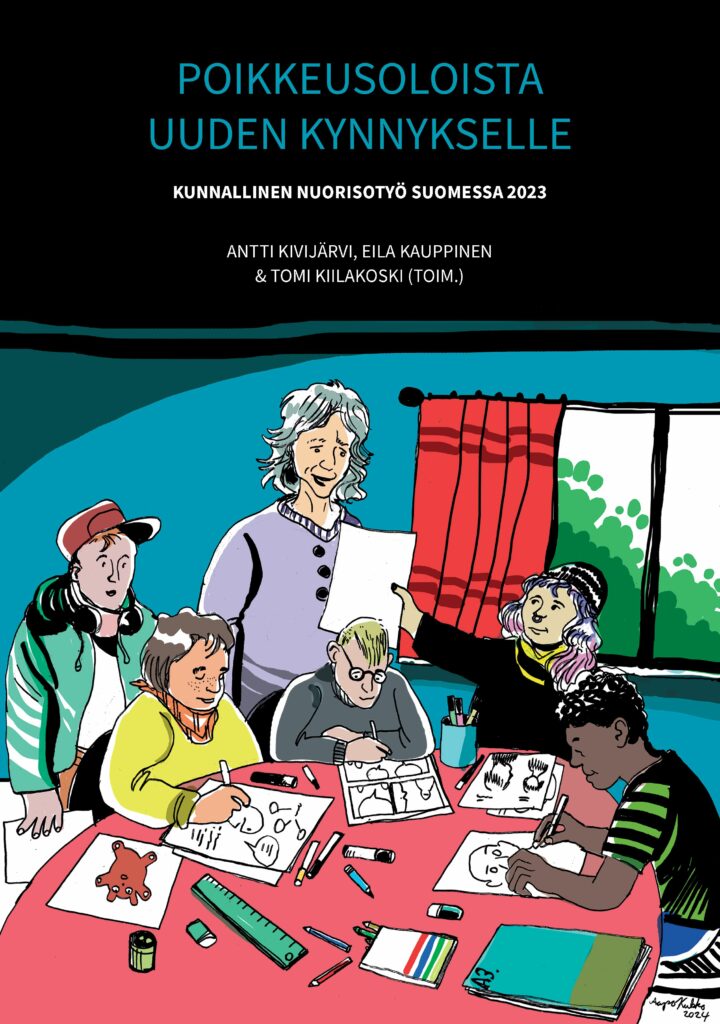Finnish public bodies have invested financial resources in school-based youth work, particularly in the 2020s. The stated aim of school-based youth work has been to promote the wellbeing of young people in schools. Youth work programs are expected to enhance the young people’s peer relations, increase feelings of community, and reduce bullying. Consequently, a study has been made on the effects of municipal school-based youth work on the wellbeing of young people in upper comprehensive schools in Finland. Previous knowledge on school-based youth work was scant, which included mainly theoretical-normative papers on what youth work could or should be in school contexts.
The new study was based on a mixed-methods research setting in which both quantitative and qualitative data were used. Based on large-scale survey datasets, schools (n=21) with an enduring tradition of intensive youth work were compared with schools (n=20) with no history of youth work or related programs. Furthermore, case studies in three schools with strong youth work tradition and high self-reported school wellbeing were conducted to explain the sought-after outcomes.
The results indicate that school-based youth work reduces the prevalence of bullying and to some extent enhances the class atmosphere and increases opportunities for young people to have an influence on the everyday practices in their schools. However, the variation between schools was large, and the levels of wellbeing were even below average in some schools with relatively strong investments in youth work. According to the case studies, sustainability and strong co-professional networks explains the success of school-based youth work.
In conclusion, with school-based youth work one can have several positive outcomes, but not without persistence and supporting structures. In Finland, the status of group-based youth work has been strong. Therefore, it came as no surprise that the effects of school-based youth work were located at the group level as well. Effects could not be observed at more individual or communal levels of school wellbeing, such as the accessibility of adult support or attachments to schools as communities.
Publication details

Antti Kivijärvi, Eila Kauppinen & Tomi Kiilakoski (eds.) (2024) Poikkeusoloista uuden kynnykselle. Kunnallinen nuorisotyö Suomessa 2023 (From exceptional circumstances to the threshold of a new era. Municipal youth work in Finland 2023). Helsinki: Finnish Youth Research Society, publication 249, online publications 186.
Publication is available only in Finnish.
Funding
The research was funded by the Ministry of Education and Culture and was conducted as a part of a Center of Expertise Nuoska – Youth Work at Schools and Educational Institutions (coordinated by the South-Eastern Finland University of Applied Science’s Youth Research and Development Center Juvenia).



